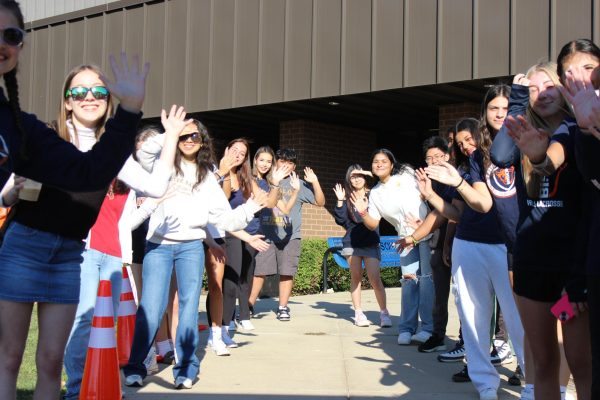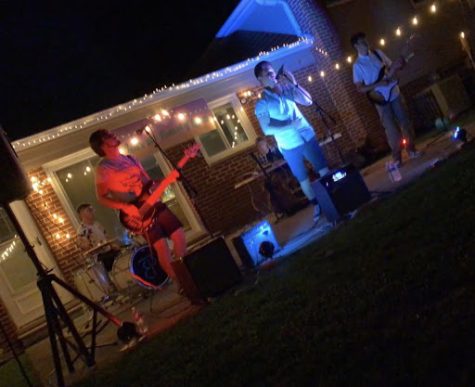Celebrity deaths establish parasocial connections amongst communities
The world came to a halt when basketball legend Kobe Bryant and his daughter, Gianna, had been killed in a helicopter crash. Whether it’s the more recent 2020 death of Bryant or the 2009 death of Michael Jackson, celebrity deaths give societies a rare opportunity to show unity and empathy on a community level. This very public outpouring of grief which often results from the death of a well-known figure allows individuals to feel part of their community, to face their own mortality and to experience grief in a supported and safe environment.
“I think that the death of a celebrity humanizes these people that we’ve put on this pedestal and we think they’re invincible and immortal on some level,” English teacher Jeffrey Grybash said. “The connection that some communities make after a celebrity death reinforces life after death.”
According to the online mental health resource Psych Central, this connection is often due to a psychological phenomenon called a parasocial relationship: a one-way bond where the other person doesn’t know you exist, but you’ve dedicated emotional energy to get to know them.
“As a big fan of Kobe, I listened to his podcast often for basketball and some quotes he mentioned in that podcast still stick with me,” senior Zori Angelova said. “The experience of fandom today has made it easier than ever to form parasocial relationships with intensity and depth.”
Additionally, today’s social media platforms allow individuals to feel like they know the most intimate details of a person’s life, with a new forum and opportunity to grieve publicly. Twitter gives access to famous people’s thoughts in real time and Instagram allows people to see what they had for lunch. According to Angelova, we often turn to social media to revisit the moments of greatness and failure of that person and that in turn solidifies the memory of them and allows us to connect further.
“Without a doubt, you can easily find someone with the same taste in music as you, so it becomes easier to connect and grieve with people on social media,” senior Marta Bondarenko said. “This 24/7 accessibility makes us feel like we have a personal relationship with them, so I often turned to Twitter to help me cope with [rapper] Mac Miller’s death.”
Some of these celebrity deaths also feel so personal because they resonate with us on a deeper, psychological level. We may grieve celebrities because our dream was to emulate their career path.
“A lot of celebrity deaths are pretty personal in how we react in nature,” Grybash said. “We often do take a lot of their attributes and either try to model or modify them into our position because we don’t occupy that space that they do.”
According to Psychology Today, part of the reason that individuals mourn the loss of celebrities is because our brains are hardwired and tend to think that a lot of celebrities are part of our own, inner social circle. Therefore, individuals have tendencies to purchase something made by their celebrity like their clothes or their shoes.
“Now, it’s so easy to buy people’s clothing brands like Kate Hudson’s ‘Fabletics’ and wear their makeup,” Grybash said. “Even with the popularity of Kanye West’s Yeezys, lots of teens find themselves immersed in that same social circle.”
According to Grybash, although there may be a lot of grief and sadness associated with their death, it also reminds us to be good to people during life because we usually have a lot of things left unsaid. It reminds us to remember the things that make us feel alive such as passion and love, not just the material things that we get wrapped up in in our lives. Therefore, celebrity deaths allow us to connect as a community and grieve in a communal way, remembering and honoring their impact on society.
“Although he or she is gone, what they gave you, such as memories, music or inspiration, is still here,” Bondarenko said. “Therefore, I continue to listen to Mac Miller’s music and paint portraits of him to cope and instantly put myself in a better headspace.”





